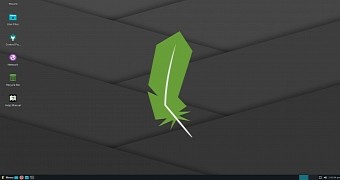As of last night, Linux kernel 5.2 is out and Linux Lite users are once again among the first to install it on their computers to enjoy all the new features and improvements.
Announced by Linus Torvalds on June 7th, 2019, Linux kernel 5.2 is now the most advanced kernel series featuring a new open-source firmware for DSP audio devices, a new mount API for mounting file systems, new open-source GPU drivers for ARM Mali devices, and a new CPU bug infrastructure to protect devices against the Intel MDS hardware flaws.
Linux kernel 5.2 also improves resource monitoring for Android devices, adds some notable performance improvements to the BFQ I/O scheduler, allows case-insensitive names in the EXT4 file system, and introduces a new, Arch-independent "mitigations=" boot option to make it easier to enable and disable mitigations for CPU vulnerabilities.
As usual, Linux Lite developer and founder Jerry Bezencon was quick to package the Linux 5.2 kernel and distribute it to users through the software repositories in Linux Lite 4.x and Linux Lite 3.x operating system series. Please follow the next instructions to install Linux kernel 5.2 right now on your Linux Lite computer.
How to install Linux kernel 5.2 on Linux Lite
No matter if you're using Linux Lite 4.x or Linux Lite 3.x on your personal computer, you can now install the latest Linux 5.2 kernel from the official software repositories by opening the Lite Tweaks utility from the Applications > System menu, and selecting the Kernel Installer feature. Alternatively, you can run the command below to install Linux kernel 5.2.
sudo apt-get update && sudo apt-get install linux-headers-linuxlite-5.2.0 linux-image-linuxlite-5.2.0 -y
Before installing Linux kernel 5.2, please try to keep in mind that is only recommended to those who need support for some specific hardware components that don't work with a previous Linux kernel series. Once Linux kernel 5.2 was successfully installed, you should reboot your computer for the changes to be applied correctly.
"If you use proprietary drivers, this kernel may break functionality with those drivers. If you have proprietary drivers installed and you still decide to go ahead with this kernel install, you should be competent in repairing your drivers. If you aren't, DO NOT install this kernel," said developer Jerry Bezencon.

 14 DAY TRIAL //
14 DAY TRIAL //